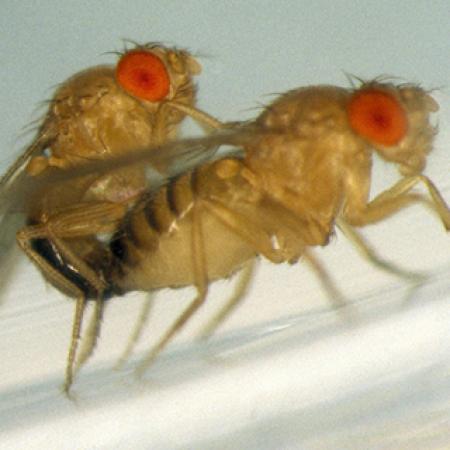Mertonian wins Charles Darwin Award and Marsh Prize for outstanding work in zoology
Former Merton Biology undergraduate Ben Hopkins has been awarded the Zoological Society of London's Charles Darwin Award and Marsh Prize for his research on the reproductive biology of fruit flies (Drosophila melanogaster). The prize, which recognises outstanding work in zoology, is worth £800, and is awarded for the best undergraduate research in the UK.
When two males mate with a single female in a given time period, their sperm are in direct competition with one another for fertilisations. Ben's project focussed on the role played in this 'sperm competition' by a small subpopulation of cells within the accessory glands of fruit flies—the insect equivalent of the human prostate. These glands secrete proteins which are then transferred to the female in the seminal fluid; they then induce behavioural and physiological changes, causing the female to eat more, sleep less, reject courting males, and lay more eggs—essentially turning them into efficient offspring-producing machines.
The project was carried out under the supervision of Dr Stuart Wigby during Trinity Term and the summer of 2013, supported by a £500 David Kirby Memorial Award from the Department of Zoology.
Ben, who took a first-class degree in Biological Sciences last year, is currently reading for a DPhil in Interdisciplinary Bioscience at Linacre College, supported by the EP Abraham Oxford Graduate Scholarship in conjunction with some additional funding from the Biotechnology and Biological Sciences Research Council. He commented:
"The prize is as wonderful an honour as I could hope to be awarded. I am indebted to the phenomenal support and stimulation that I have received from the University, the Department of Zoology, and, as an undergraduate, Merton College."
Whilst a second-year at Merton, Ben was also awarded a College Research Award to carry out research on the adaptive significance of courtship display in life-time mating monogamous species.
